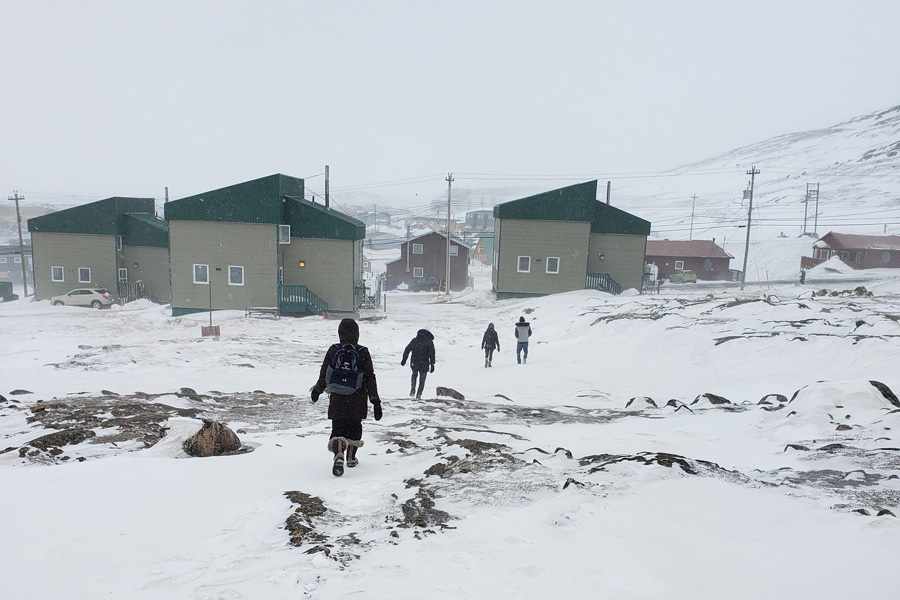Two U of T Engineering students — Lia Codrington (Year 3 EngSci) and Natalie Enriquez-Birch (TrackOne) — have just returned from a life-changing trip to Iqaluit.
The students were among 22 young leaders, including 11 from Canada’s North, selected to attend the Arctic Youth Ambassador Caucus. Over the course of four days, they met with Inuit Elders to learn about the rich history of Nunavut and participate in round tables on Northern issues, such as food security, health care, environment and education. The group also included Adam El-Masri, a computer science student at U of T.
“I found the landscape amazingly beautiful,” says Codrington “I’ve never been somewhere with no trees. The cold was also something I’ll never forget, but everyone was very welcoming and kind, sharing food and showing us around the city.”
Last year, Codrington founded the Indigenous Allyship program within U of T’s chapter of Engineering Without Borders, which Enriquez-Birch joined this year. Together with several other students, they have been engaged in self-driven learning about Indigenous culture and history in Canada, as well as working to bring more awareness of reconciliation to campus.
“This conference was a great way to make personal connections that we can hopefully build on in our future work,” says Codrington.
The group had the opportunity to volunteer at an Iqualuit food centre. In conversation with the proprietors, Codrington learned that they are looking for a way to manage the organic food waste that they produce. She is looking into a potential future partnership with U of T Engineering to develop a solution.
For Enriquez-Birch, the personal connections were the most memorable part of the conference.
“I’m fond of the many moments of personal sharing that really shaped my perspective of youth in the North,” says Enriquez-Birch. “Although they face unique challenges related to culture and remote living, they also have very real struggles that young Torontonians can easily relate to with regards to affordability and economic opportunity.”
Robin Idlout, 21, is a member of the Inuit community and one of the delegates from Iqaluit.
“It was great to meet young people from across Canada who actually care about Nunavut, and about the well-being of the people here,” he says. “We were able to have a real conversation, to ask each other about how to make a difference.”
Idlout shared that meeting engineering students made a particular impression on him.
“That’s what I’ve always wanted to be, but I had no knowledge in that area,” he says. “I was surprised to hear that studying engineering can sometimes be lonely, and about the challenges they have getting their ideas across in group settings. That’s something I can understand.”
Idlout, who is preparing for a career in the fisheries industry, is keeping in touch with Codrington, Enriquez-Birch and the others through Facebook and hopes to be part of future endeavours.
Now back on campus, Codrington and Enriquez-Birch are also collaborating with other groups — including U of T Engineering’s Eagles’ Longhouse — and discussing projects that could focus the efforts of their Indigenous Allyship program. One topic that they are particularly interested in is housing.
“Robin confirmed that it’s definitely an issue that needs to be addressed,” says Codrington “We are very much interested in learning more about the housing crisis and seeing how we can use what we’ve learned in school to support a solution.”
Codrington says she has returned energized.
“Getting the opportunity to speak with people living in Nunavut gave me a new perspective on what it means to live in the North,” says Codrington. “The generosity, kindness, and resilience of the people I met were inspiring.”




